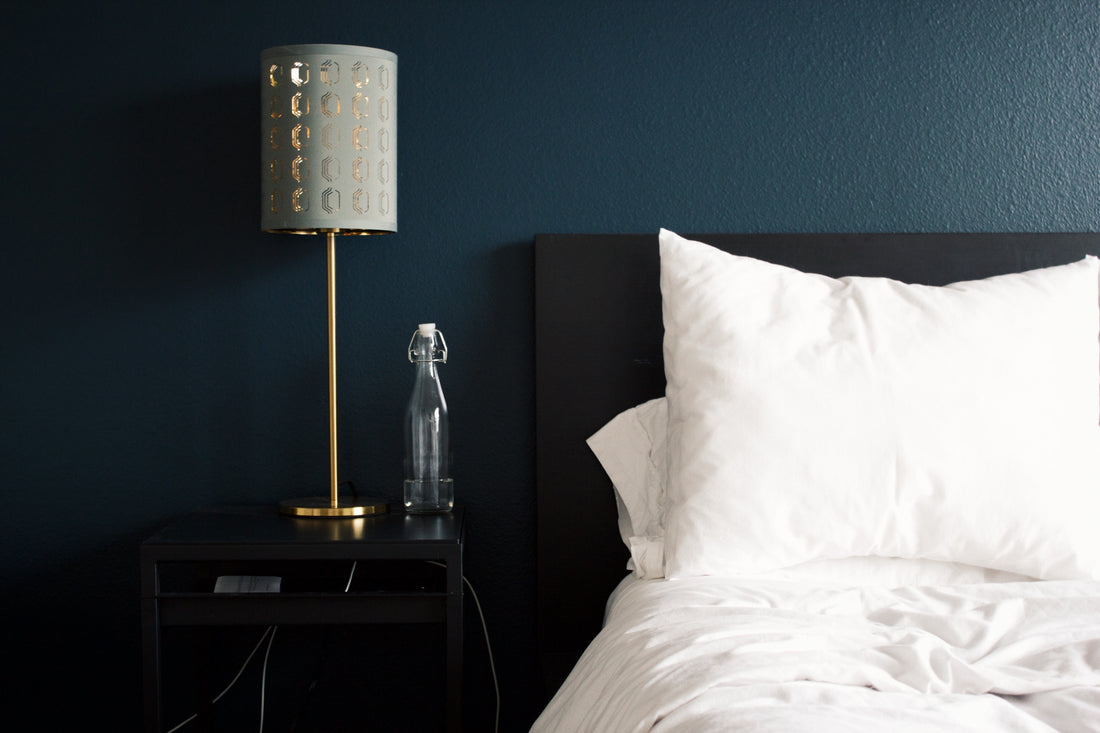
Sleep deeper at the right degree (°C)
SLEEP BETTER BY MAINTAINING THE RIGHT TEMPERATURE FOR SLEEP
Our sleep is closely linked to the circadian rhythm of our body’s core temperature. Without our body undergoing the necessary temperature changes we cannot fall asleep and if our body is not at the right temperature throughout the night our sleep quality will suffer. To fall asleep our core temperature needs to drop and our skin temperature needs to increase.

During sleep we are more sensitive to temperature changes than when we are awake and are more likely to either start to sweating in sleep if we are too warm or start to shiver if we are too cold.
The change in our body’s temperature is much greater when we are in the REM phase of our sleep compared to when we are in the lighter phase. To ensure we enjoy the maximum amount and quality of sleep we need to keep our body in the thermoneutral zone which offers the best temperature for sleep. If we don’t stay within this zone, the length and quality of our sleep will suffer.
There are many factors that impact our temperature during the night. For example, as we grow older we often experience changes in our circadian rhythm which is associated with a lower sleep quality and a decreased daytime alertness as well as declining cognitive performance.
Changes to our circadian rhythm and temperature patterns affect women more than men, which means women often sleep worse as they get older than men do.
Research has also shown a close correlation between sleep disorders such as sleep apnea and our body temperature. The results show that if temperature changes to our skin do not occur it can affect how quickly we fall into deep sleep making us feel sleepy during the day.
People who have cold hands and feet (extremities) are also pre-disposed to have problems falling asleep. Low skin temperature prevents our core body temperature from dropping which stops us falling asleep. Studies show that this impacts young people more often than older people and women more than men. People who have a lower BMI are also much more prone to suffer from cold extremities than people with a higher BMI.
Intense exercise can also raise our core body temperature by up to 2°C. Exercise can therefore help us fall asleep if we do it 4-6 hours before going to bed but can stop us falling asleep if we do it to closer to bedtime.
There are also other ways that we can help our body to achieve the right temperature to fall asleep faster and to stay asleep for longer. Studies show that taking a warm bath before going to bed shortens the time it takes us to fall into deep sleep. A bath helps increase our skin temperature which in turn helps our circadian rhythm. People who suffer from cold extremities can also fall asleep faster by warming up their hands and feet before bedtime.
By keeping our room at a low temperature, we breathe in cool air which helps to lower our core body temperature. Combine this with sleepwear and bedding that keeps you warm but stops you getting sweaty and you can maintain your skin temperature as well. This combination sets you up for the best possible night’s sleep so that you wake up refreshed and ready to take on another day.
HOW TO SLEEP BETTER WITH DAGSMEJAN
You can find your ideal solution with Dagsmejan Stay Warm collection which pairs nature's performance fibres, the finest merino wool and high tech Tencel. Wool pajamas has been proven to help you sleep deeper and longer and Dagsmejan Stay Warm sleepwear is 4 times more breathable than cotton and twice as soft. Discover how to sleep better with Dagsmejan:
Discover best pajamas for men
Discover best pajamas for women

Sources: Gender Differences in the Circadian Temperature Rhythms of Healthy Elderly Subjects: Relationships to Sleep Quality. Scott S. Campbell, *tJ. Christian Gillin, *tDaniel F. Kripke, *tPatricia Erikson, and tPaul Clopton. Body Temperatures, Sleep, and Hibernation. Kurt Kräuchi and Tom Deboer. Thermal discomfort with cold extremities in relation to age, gender, and body mass index in a random sample of a Swiss urban population. Maneli Mozaffarieh1, Paola Fontana Gasio2, Andreas Schötzau1, Selim Orgül, Josef Flammer and Kurt Kräuchi. Circadian Impairment of Distal Skin Temperature Rhythm in Patients With Sleep-Disordered Breathing: The Effect of CPAP.Martinez-Nicolas A, Guaita M, Santamaría J, Montserrat JM, Rol MÁ, Madrid JA






